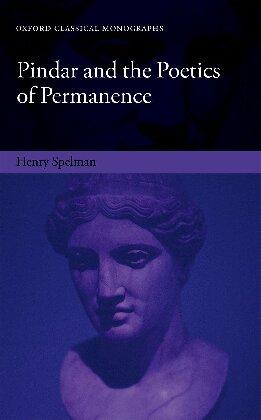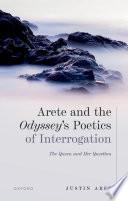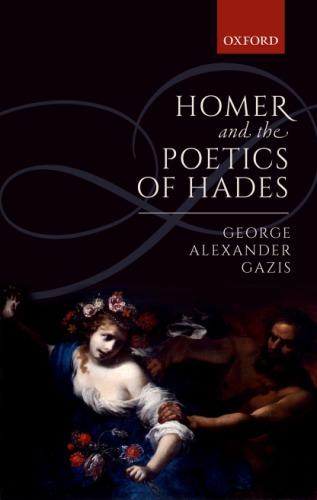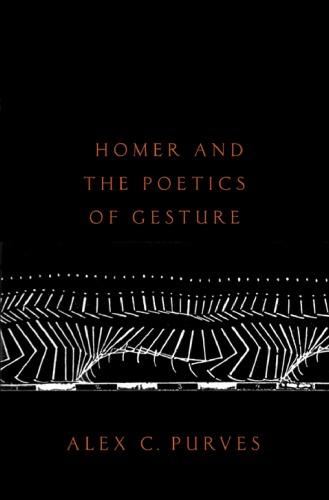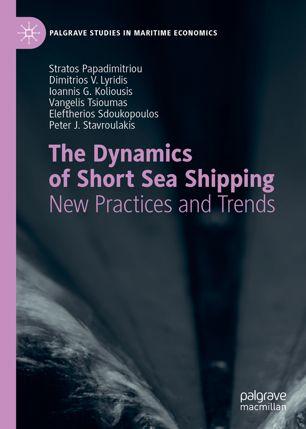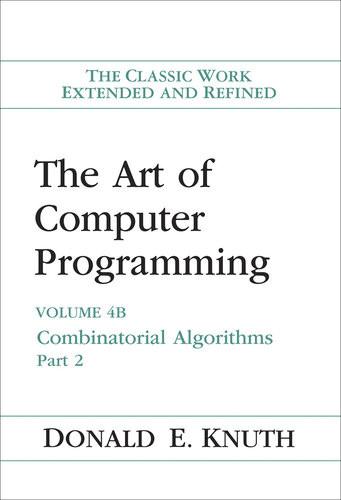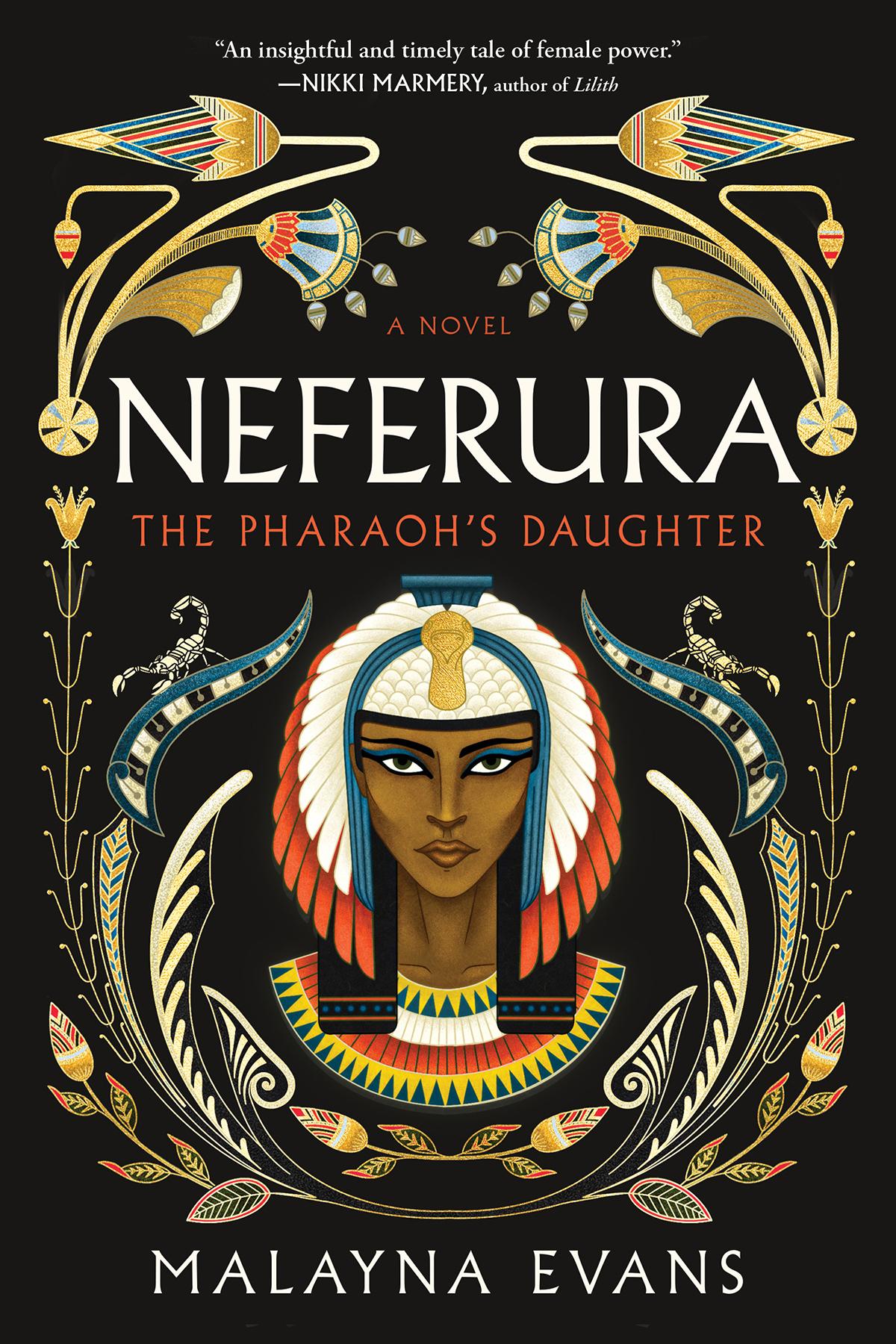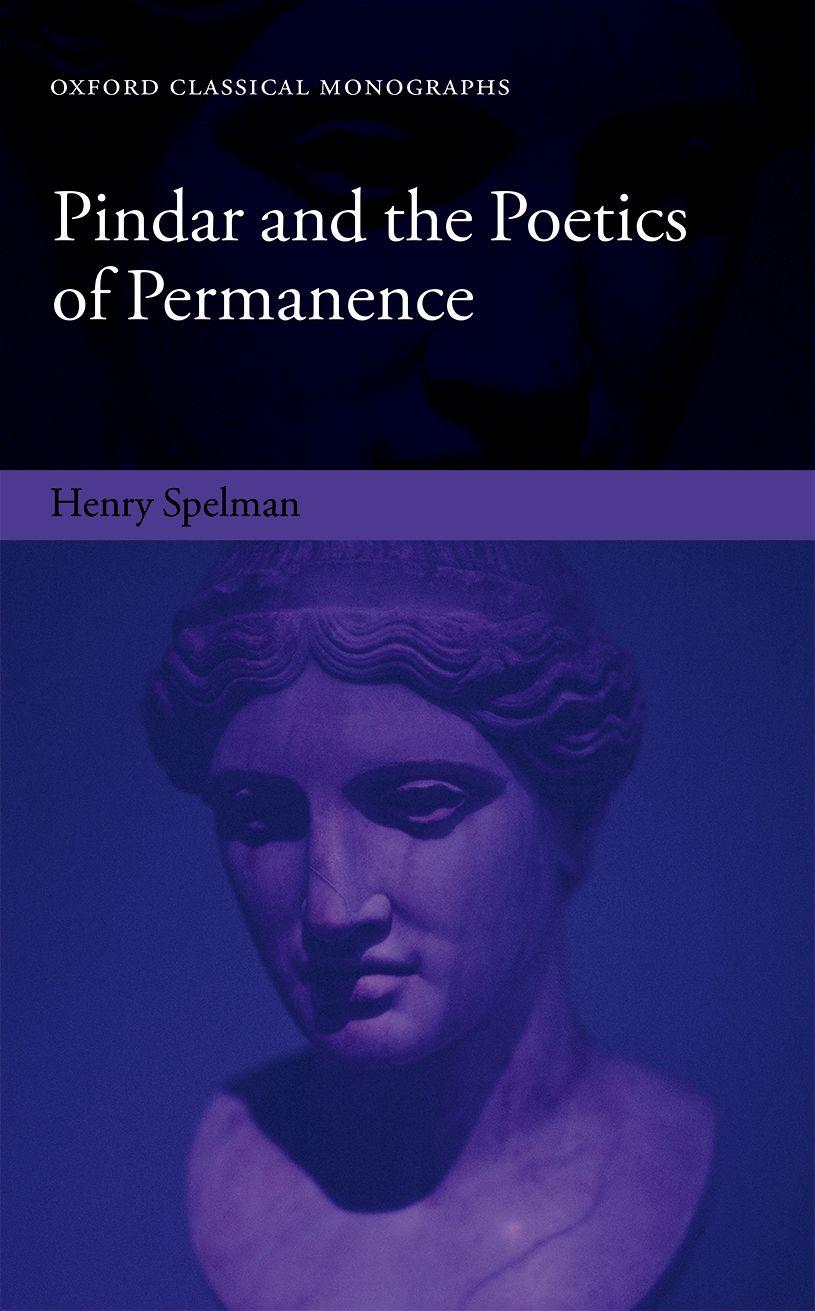https://ebookmass.com/product/pindar-and-the-poetics-of-
Instant digital products (PDF, ePub, MOBI) ready for you
Download now and discover formats that fit your needs...
Arete and the Odyssey's Poetics of Interrogation Justin Arft
https://ebookmass.com/product/arete-and-the-odysseys-poetics-ofinterrogation-justin-arft/
ebookmass.com
Homer and the poetics of Hades First Edition Gazis
https://ebookmass.com/product/homer-and-the-poetics-of-hades-firstedition-gazis/
ebookmass.com
Homer and the Poetics of Gesture Alex C Purves
https://ebookmass.com/product/homer-and-the-poetics-of-gesture-alex-cpurves/
ebookmass.com
The Dynamics of Short Sea Shipping: New Practices and Trends 1st ed. Edition Stratos Papadimitriou https://ebookmass.com/product/the-dynamics-of-short-sea-shipping-newpractices-and-trends-1st-ed-edition-stratos-papadimitriou/
ebookmass.com
Donald Knuth
https://ebookmass.com/product/the-art-of-computer-programmingcombinatorial-algorithms-donald-knuth/
ebookmass.com
Paying for Pollution: Why a Carbon Tax Is Good for America
Gilbert Metcalf
https://ebookmass.com/product/paying-for-pollution-why-a-carbon-taxis-good-for-america-gilbert-metcalf/
ebookmass.com
A Hundred Other Girls: A Novel Iman Hariri-Kia
https://ebookmass.com/product/a-hundred-other-girls-a-novel-imanhariri-kia/
ebookmass.com
Neferura Malayna Evans
https://ebookmass.com/product/neferura-malayna-evans/
ebookmass.com
Bratva Beauty (The Ivankov Brotherhood Book 4) Sabine Barclay & Celeste Barclay
https://ebookmass.com/product/bratva-beauty-the-ivankov-brotherhoodbook-4-sabine-barclay-celeste-barclay/
ebookmass.com
Fundamentals of Heat Engines 1st Edition Jamil Ghojel https://ebookmass.com/product/fundamentals-of-heat-engines-1stedition-jamil-ghojel/
ebookmass.com
OXFORDCLASSICALMONOGRAPHS PublishedunderthesupervisionofaCommitteeofthe FacultyofClassicsintheUniversityofOxford
TheaimoftheOxfordClassicalMonographsseries(whichreplaces theOxfordClassicalandPhilosophicalMonographs)istopublish booksbasedonthebestthesesonGreekandLatinliterature,ancient history,andancientphilosophyexaminedbytheFacultyBoardof Classics.
Pindarandthe Poeticsof Permanence HENRYSPELMAN GreatClarendonStreet,Oxford,OX26DP, UnitedKingdom
OxfordUniversityPressisadepartmentoftheUniversityofOxford. ItfurtherstheUniversity’sobjectiveofexcellenceinresearch,scholarship, andeducationbypublishingworldwide.Oxfordisaregisteredtrademarkof OxfordUniversityPressintheUKandincertainothercountries
©HenryL.Spelman2018
Themoralrightsoftheauthorhavebeenasserted FirstEditionpublishedin2018
Impression:1
Allrightsreserved.Nopartofthispublicationmaybereproduced,storedin aretrievalsystem,ortransmitted,inanyformorbyanymeans,withoutthe priorpermissioninwritingofOxfordUniversityPress,orasexpresslypermitted bylaw,bylicenceorundertermsagreedwiththeappropriatereprographics rightsorganization.Enquiriesconcerningreproductionoutsidethescopeofthe aboveshouldbesenttotheRightsDepartment,OxfordUniversityPress,atthe addressabove
Youmustnotcirculatethisworkinanyotherform andyoumustimposethissameconditiononanyacquirer
PublishedintheUnitedStatesofAmericabyOxfordUniversityPress 198MadisonAvenue,NewYork,NY10016,UnitedStatesofAmerica
BritishLibraryCataloguinginPublicationData Dataavailable
LibraryofCongressControlNumber:2017955475
ISBN978–0–19–882127–4
Printedandboundby CPIGroup(UK)Ltd,Croydon,CR04YY
LinkstothirdpartywebsitesareprovidedbyOxfordingoodfaithand forinformationonly.Oxforddisclaimsanyresponsibilityforthematerials containedinanythirdpartywebsitereferencedinthiswork.
Formyparents, {J.H.SandR.L.S
Acknowledgements Ifittakesavillagetoraiseachild,ittakesalotmoretoproduce amonographaboutPindar.Thisparticularmonographrepresents arevisedversionofthe fi rsttwopartsofanOxfordDPhilthesis submittedin2015.IammostgratefultotheRhodesTrust, BalliolCollege,Oxford,MagdalenCollege,Oxford,theOxford classicsfaculty,andChrist’ sCollege,Cambridgeforthe fi nancial andinstitutionalsupportthatenabledmetoenjoytheluxuryof spendingyearsthinkingaboutancientliteraturewitharoofover myheadandfoodinmystomach.Infact,thefoodwasoften excellent.
PatrickLakepatientlyinstructedmeintherudimentsofGreek evenaftermynosebledprofuselyovermy firsttest,whichIfailed. HenryV.Bendertaughtmehowtoreadatextandtookmyideas seriouslyevenwhentheydidnotdeservethat.WilliamH.Raceonce thoughtitworththreehoursofhisweektoreadthroughallof PindarwithasophomoreEnglishmajorwhowantedtodoan independentstudy.Healsoreadandcommentedonthedoctoral thesisthateventuallygrewfromthosethrillingmeetingsandfrom thefascinationwithancientpoetrywhichtheykindledinme. PatrickFinglasskindlyagreedtosupervisethe fi rstyearofmy doctorateatOxfordandhassincecontinuedtosharehiswarm friendshipandsageadvice.Mysupervisor,GregoryHutchinson, guidedmealongtheroadtosubmissionwithhissingularinsight, erudition,andgoodhumour.Withouthimboththisworkand Imyselfwouldbeverydifferentandverymuchworseoff.Douglas Cairnsservedasmyexternalexaminerandprovidedinvaluable guidanceinimprovingthisworkinpreparationforpublication. FelixBudelmannservedasmyinternalexamineraswellasaconstantsoundingboardandsourceofinspirationinmanysenses.My advisorfortheOxfordClassicalMonographsSeries,AngusBowie, helpedgreatlytoenhancetheclarityandreadabilityofthe fi naltext. Whateverblundersandinfelicit iesremainthereinbynomeans re fl ectonthegenerosityandwisdomofallthoseremarkableindividualswhohelpedmetoseeitthroughtocompletion.
Acknowledgements SaraVanDerBeek’ s RomanWomanI keptfaithfulwatchovermy deskthroughoutthelastyearofrevision.Iamgratefultotheartistfor permittingherworktobereproducedonthecover.
Morepurelypersonaldebts,fartoonumeroustoberecordedhere, havebeenacknowledgedelsewhereandinotherways.Mydeepest debtisacknowledgedinthededication.
NoteonTranslationsandConventions
ListofAbbreviations xv Precis xvii
PARTONE:PINDAR ’ SAUDIENCES I.SecondaryAudiences13
1.Knowledgeof firstperformance18 2.Knowledgeofexternalrealities27
28
3.Difficultpleasures36
4.Oralityandwriting39
II.VitalLightin Isthmian 445
III.EventandArtefact:FromPerformancetoPermanence63
1. Isthmian 2.43–865
2. Olympian 10.91–666
3.Bacchylides13.220–3167
4.Pindarfr.52o69
5. Nemean 3.76–8471
6.Bacchylides3.90–872
7.Conclusions74
IV.ThePoeticsofPermanence79
1.Timetravelandtradition: Pythian 180
2.Thevictor’sperspective: Nemean 486
3.Epinicianlessons: Pythian 690
4.Epicanalogues: Pythian 3101
5.Epigrammaticinteractions: Nemean 5110
6.Interwovenperspectives: Nemean 7and Paean 6119
VI.TheEpinicianPast183
1.Epinicianoriginsinhistory:athletics,Ibycus, Simonides184
2.Epinicianoriginsinepinician:fromrevelto
3.The flowersofnewpoems: Olympian 9203
VII.TheEpinicianPresent215 1.Genericreferences215
2.Thepoet’scareer219 3.Patronsandcommunities230 4.Othereulogists236 5.Epinicianrevels243
6. Nemean 6247
7.Conclusions252
VIII.TheLyricPast255
1.Lyrichistory255
2.Genericenrichment260
NoteonTranslationsandConventions Translationsaremyown.Theyaimatnothingmorethangivinga generalsenseofhowIunderstandtheGreek.Allancientnameshave beenanglicized(thus ‘Achilles’ ratherthan ‘Akhilleus’).
Abbreviationsofancientauthorsgenerallyfollowthe OxfordClassicalDictionary4,butBacchylidesisabbreviatedsimplyas ‘B.’.Irefer totheTheognideawithouttakingapositiononauthenticity.Thus ‘Thgn.’ andnever ‘[Thgn.]’ .
ListofAbbreviations BNJ Brill’sNewJacoby(http://referenceworks.brillonline.com/ browse/brill-s-new-jacoby).
CA J.U.Powelled., CollectaneaAlexandrina (Oxford1925).
CEG P.A.Hansened., CarminaEpigraphicaGraeca,2vols.(Texte undKommentare12,15;Berlin1983–9).
DennistonJ.D.Denniston, TheGreekParticles2,rev.K.J.Dover(Oxford 1954).
D-KH.Dielsed., DieFragmentederVorsokratiker6,3vols.,rev. W.Kranz(Berlin1951–2).
FGE D.L.Pageed., FurtherGreekEpigrams.Epigramsbefore AD 50from TheGreekAnthology andothersourcesnotincludedin HellenisticEpigrams or TheGarlandofPhilip(Cambridge 1981).
FGrH F.Jacoby etal. eds, DieFragmentedergriechischenHistoriker (Leiden1923–).
FowlerR.L.Fowlered., EarlyGreekMythography,2vols.(Oxford 2000–13).
GEF M.L.Wested., GreekEpicFragments (Cambridge,MA2003).
GP A.S.F.GowandD.L.Pageeds, TheGreekAnthology. The GarlandofPhilip andsomecontemporaryepigrams (Cambridge1968).
HE A.S.F.GowandD.L.Pageeds, TheGreekAnthology. Hellenisticepigrams (Cambridge1965).
LSJ9 H.G.LiddellandR.Scott, AGreek–EnglishLexicon9,rev. H.Stuart-Jonesetal.(Oxford1940).
PCG R.KasselandC.F.L.Austineds, PoetaeComiciGraeci,8vols. todate(Berlin1983–).
PMG D.L.Pageed., PoetaeMeliciGraeci (Oxford1962,corrected reprint1967).
SlaterW.J.Slater, LexicontoPindar (Berlin1969).
SLG D.L.Pageed., SupplementumlyricisGraecis.Poetarum lyricorumGraecorumfragmentaquaerecensinnotuerunt (Oxford1974).
ListofAbbreviations S-MB.SnellandH.Maehlereds, PindariCarminacumFragmentis, 2vols.(Leipzig1987–9).
TrGFTragicorumGraecorumFragmenta.Vol.1 Didascaliae Tragicae,CatalogiTragicorumetTragoediarum,Testimoniaet FragmentaTragicorumMinorum (ed.B.Snell;Göttingen 19711,19862);vol.2 FragmentaAdespota (edsR.Kannichtand B.Snell;1981);vol.3 Aeschylus (ed.S.L.Radt;1977);vol.4 Sophocles (ed.S.L.Radt;19851,19992);vol.5 Euripides (ed. R.Kannicht;2parts;2004).
WM.L.Wested., IambietElegiGraecianteAlexandrumcantati2 , 2vols.(Oxford1989–92). xvi
Precis ThisworkisconcernedwithPindarandarchaicGreekliterary culture.PartOnediscussesPindar’srelationshiptohisaudiences.It demonstrateshowhisvictoryodesaddressanaudiencepresentat theirpremiereperformanceandalsoabroadersecondaryaudience throughoutspaceandtime.Iarguethatgettingthemostoutofthese textsinvolvessimultaneouslyassumingtheperspectivesofboth.Part TwodescribeshowPindarusesotherlyrictosituatehisworkboth withinanimmanentpoetichistoryandwithinacontemporarypoetic culture.ItsetsoutPindar’svisionoftheliteraryworld,bothpast andpresent,andshowshowthisframeworkshapesthemeaningof hiswork.
PartOne Pindar’sAudiences IntroductiontoPartOne ThequestionofhowweshouldinterpretPindar’sepiniciansas historicalartefactsisintertwinedwiththequestionofwhataudience headdressed.Theintendedreceiveroftenplaysakeyroleinthe interpretationofvariousactsofcommunication.Apapyrus,for instance,forbiddinganyonefromenteringthehouseofapriesthas adifferentinterestandusefulnessasevidenceifweunderstandthatit isapublicsign,notaprivateletter.1 PindaricscholarshipsinceBundy hasgiventhepoet’saudienceanincreasinglycentralrole.Inoneof thefewappealstoextratextualrealityin StudiaPindarica,Bundy (1986;original1962)32announcesthatheseekstoelucidate ‘agrammarofchoralstylethatwilltelluswhatsystemsofshared symbolsenabledthepoetandhisaudiencetoviewtheodesasunified artisticwholes’.Muchsubsequentscholarshiphasfocusedon Pindar’soriginal ‘listeningaudience’ (Bundy(1986)35)butina differentway.
AlongsidetherhetoricalapproachdescendingfromBundythere hasdevelopeda ‘pragmatic’2 approachwhichemphasizesthenecessityofsituatingGreeklyricintheimmediatecircumstancesofitsinitial productionandreception.3 Gentili(1984;Englishtranslation1988) remainsamongthemostcitedworksinthe field.Herington(1985) broughtattentiontonon-verbalelementsofperformance.Calame’ s
1 TextandphotographinCavalloandMaehler(2008)28–9.
2 Cf.Rösler(1984),Gentili(1990),Neumann-Hartmann(2009)5,Caciagli(2016) 245–8.
3 Ford(2003)37: ‘theliterallyunforgettablesongsthatwereadweresurroundedby auntranscribableworldthatwecanonlyread,butwemust findwaystodosoifwe wishtounfoldonceagainthetabletsofsong;’ Fearn(2011b)211: ‘thereisaneverincreasingrealisationamongstscholarsthatepichoricconditionsprovidethekeytoa roundedunderstandingofchorallyric.’
studyofmaidenchoruses(1977;Englishtranslation1997)pavedthe wayforlaterworkswithananthropologicalfocus.Rösler’sbookon Alcaeus(1980)setanexampleformuchsubsequentscholarshipby focusingonthesocialroleoflyric.
Theperformance-orientedapproachtoGreeklyric,borninthe 1970sand1980sbutdevelopingthreadsinherentinearlierscholarship,hasbynowmaturedintoastandardandindeeddominantstyle ofinterpretation.4 SinceSimonides’‘PlataeaElegy’ waspublishedin 1992,forexample,itsoriginalperformancecontexthasreceiveda greatdealofattention.5 ManyrecentmonographsonPindarand Bacchylidesprivilegeinitialperformanceastheprimaryfocusof research.Krummen(1990)studiesPindar’sworkas ‘Gelegenheitsdichtung’ (1)inwhich ‘dieGedichteselbstrichtensichaneinunmittelbar anwesendes,demDichterbekanntesPublikum’ (4).Krummen’ spremisesinclude ‘daßPindarsGedichteineinemhistorischenKontextzu verstehensind,daßsiefürbestimmteRahmenbedingungenkomponiertwurden’ (27).Kurke(1991)seekstodescribehowepinician negotiatedideologicalfaultlineswithinthevictor’shomecommunity. Cole(1992)15aspirestowards ‘gettingattheentireexperienceof whichthesetextswereonceapart’.Pfeijffer(1999a)11aimstoshow howanode ‘fulfilleditsencomiasticaimsinthecontextofits first performance’.H.S.Mackie(2003)1 ‘stud[ies]Pindar’sepinician poetryfromtheperspectiveofperformance’.FocusingonAegina, Burnett(2005)5triesto ‘discoverthepleasurestakenandtheinfluences feltasaparticularaudiencewatchedeachperformance’.Currie(2005) 205‒25interprets Isthmian 7asameditationonanunmentioned
4 Budelmann(2009b)15: ‘asscholarshipinthehumanitiesstartedtakinga “performativeturn”,performancebecametheheartalsoofanewparadigmfor Greeklyric,pioneeredbyBrunoGentiliandJohnHeringtoninthe1980sand dominanteversince.’ Seealreadye.g.Hor. Ars.P.401–7,Ath.14.627a–bKaibel, Wilamowitz(1900)14,Merkelbach(1957)6,Fränkel(1975)133.
5 Therangeofproposedanswers,fromPlataea(Rutherford(2001b)40)to Thermopylae(Pavese(1995)24)totheIsthmus(Shaw(2001))toSigeion(Schachter (1998)),doesnotbodewellfortheprospectsofachievingconsensusoninternal evidence.Plutarch,whoreadthewholepoem,mightnothaveknownwhereitwas firstperformed(cf.Aloni(2001)101).Inanyevent,Simonides’ citationofHomeric precedent(11.15 –28W)asaparallelforhisownauthorialambitionsentailsthat assumingtheperspective ‘delpubblicoacuiilcarmeeradestinato’ (Sbardella(2000)6) involvestakingabroadperspectivenotlimitedtoanysinglecommunity. ἐν Ϲπάρται (Pind. P. 1.77)mightsuggestthatthe ‘PlataeaElegy’ was firstperformedinSparta (VII.2.B).
Thebancultforthewardead,notsecurelyattestedforthisperiod.Fearn (2007)stressesthenecessityofreading ‘incontext’ (2)andinterprets variouspoemsinthecontextoflocalpolitics.Kowalzig(2007)8studies culticlyric ‘asaformofsocialpracticeoperatinginthehereandnow’ . Neumann-Hartmann(2009)attemptstoascertaintheoriginalperformancesettingofeveryepinician.Morgan(2015)makes ‘anefforttoread Pindar’spoetryforHieronofSyracusethroughthelensofitsSicilian, andspecificallySyracusan,context’ (1).
Itissignificantthatthelastparagraphcontainsseveralquotesfrom introductionslikethisone.6 Itisemphaticallynotthecasethatthese scholarsdenythatPindar’sodesaddressedaudiencesbeyondtheir firstperformances,butratherthattheyplacethefocusoftheirstudies onthe firstperformance.EvenMorrison(2007a),whoseinterests comeclosetomine,dedicatesthelongestchapterofhismonograph to ‘thepremierandtheprimaryaudience’ (41).Thisworkinstead putstherhetoricandrealitiesofliterarypermanenceatthecentreof aninterpretationofPindar’spoetry.
Ifollowinalineofrecentscholarshipfocusedonreperformance, andmydebtstothosewhohavewrittenaboutthistopicwill,Ihope, bereadilyapparentthroughoutthiswork.7 Ialsosharesomeinterestswithsomemonographspublishedsincethedoctoratethat formsitsbasiswascompleted.Maslov(2015),Phillips(2016),and Sigelman(2016)oftenare,invariousandsometimescomplementaryways,concernedwithmovingbeyondthemeswhichhave formedmainstaysofPindaricstudiesoverthelastseveraldecades. Thismonograph,too,seekstobroadenthescopeofdiscussion.This introductionsketchesafewpotentialproblemsfacingastrongly performance-orientedapproach,outlinesanapproachtosomelargerissues,andthenbroachesthequestionofhowPindaricepinician relatedtoitspublic.
6 Calame(1997)9writesofearlyGreeklyricthat ‘definedaspoetryofoccasion,in contrasttomodernpoetry,itassumesadefinitesocialfunctionandcanonlybe understoodbyreferencetothecircumstancesofitscreation ... ithastobeunderstood asasocialact.’ Kurke(2013)103writesthat ‘itisessentialtolocateallofourpreserved Greekpoetictextsintheirspecific,localperformativecontexts.’ Caciagli(2014)opens withtheclaimthat ‘individuareilcontestoperformativodiuncarmedellaGrecia arcaicaèdecisivoperl’interpretazionedelsuocontenuto’ (57).
7 HunterandUhlig(2017)reachedmejustasthisworkwasduetothepress. IregretthatIhavebeenunabletotakeintoaccountthemanyhighlyrelevantessaysin thatvolume.
ManyworksaimtostudyPindar ‘incontext’.AsMost(1994) 132writes, ‘inthemostgeneralterms,interpretationisnothing otherthanrecontextualisation.’ Afocusonimmediatecontextsof performancecanoccludelargercontextsofliterarycultureasa broadlysharedandhistoricallysituatedculturalpractice.8 Thiscontextshapedtheexperienceofvariousaudiencestoaconsiderable degreeandisinsomewaysmoreeasilyrecoverablethroughavailable evidence.Wecansayagreatdealabouttheliteraryculturebehind Pindar’sodesinlargepartbecausePindarhimselfhasagreatdealto sayonthesubject.9 Thesepoemsprovidearichandrelativelyunderstudiedsourceofevidenceforaliteraryculturestretchingthrough timeandspace.Studyingthemwithinthisliteraryculturerather thantheimmediatecircumstancesoftheirproductionandinitial receptionmightleadonetodifferentandincompatibleconclusions orelucidateotherfacetsofcomplexrealities.Oneofthegoalsofthis workistocontextualizewithinliteraryhistoryPindar’sprojectof creatingworksthatcouldbedecontextualizedfromtheir firstperformance.Thesepoemsbelongedtomanycontexts,andwecannot fullyunderstandtheminanysinglepragmaticcontextwithout understandingthat.
‘Literature’ andthe ‘literary’ areimportantconceptsforme.Followingsomecontemporaryanalyticalphilosophersofart,Itake literaturetobeaninstitutionalpractice.10 Thepracticeofliterature inPindar’sdaydifferedfromthepracticeofliteratureasweknowit today.Byreferringtohisodesasliterature,Irelyonthosethreadsof conceptualandhistoricalcontinuitythatenablemeinquotidian conversationtotellnon-classiciststhatIstudyancientGreekliteratureandenablethemtounderstandsomethingofwhatIdo.Atthe sametime,approachingliteratureasapracticewithoutanysingle
8 Feeney(1998)141: ‘wemustbewareofmakingthoseothercontexts “primary” and “real”,withliterature “secondary” and “unreal”;forliteratureisitself,sotospeak, anothercontext.’
9 Bowra(1964)1: ‘noGreekpoetsayssomuchasPindarabouthisart.’ 10 LamarqueandOlsen(1994)255–6: ‘atextisidentifiedasaliteraryworkby recognizingtheauthor’sintentionthatthetextisproducedandmeanttoberead withintheframeworkofconventionsdefiningthepractice(constitutingtheinstitution)ofliterature Aninstitutionalpractice,asweunderstandit,is constituted bya setofconventionsandconceptswhichbothregulateand define theactionsand productsinvolvedinthepractice.’ Cf.Lamarque(2009)57–66,(2010).Feeney (2016)175writesthat ‘literatureisaninstitutionalstructurewithitsowntransformativeformalandsocialpower.’
timelessessencebutwithitsownhistorycanprovideasuitably flexibleframeworkforunderstandingchangeovertime.11 Iam primarilyinterestedinPindarasaparticipantinthepracticeof literatureandasawitnesstoitshistory.Thisisbynomeansthe onlyreasontobeinterestedinthesetexts,andImakenoclaimto comprehensiveness.
Speakingofa ‘literaryculture’ surroundingPindar’sodesmight strikesomeasanachronistic.Theperformance-orientedapproach tendstooperatewithacertainmore-or-lessexplicitconceptionof large-scaleliteraryhistoryinthebackground.Archaiclyric,including Pindar,isoftenemplottedinnarrativestracingtheriseof ‘book poetry’ fromolder,lessfamiliarpoetrythat ‘realiseditsprimary functioninactualliferatherthaninwhatwemeanbyliterature’ (Fraenkel(1957)30).12 ‘Thereisgoodreason,hereaselsewhere,to resisttheattractionsofgrandliterary-historicalnarratives’ (Currie (2016)25).Suchstoriescontainsometruth,butalsosomedistortion.13 OuroverarchingideasabouthowPindar’ spoems fitinto largerliteraryhistorieswillplayakeyroleindeterminingcritical agendasandalso filterdownsoastoaffect fine-grainedquestionsof interpretation.Scholarsfocusontheperformanceoccasionsofearly lyricinpartbecausethisisperceivedasafeaturedifferentiatingsuch textsfromlaterpoetry,suchasCallimachus Hymn 2andCatullus61, whichimaginesa fictionalizedoccasion.14 Asaresultofthistendency, wemightunderestimatethedegreetowhichPindar’soccasionsare
11 AdifferentunderstandingofliteratureplaysacentralroleinMaslov(2015), whoisalsointerestedinchangeandwritesthat ‘thePindaricmoment marksa transformationofverbalartassuch,when “literature” became,inmanyways,whatwe nowunderstandittobe’ (8).
12 Bernardini(1983)39: ‘unasvoltanell’interpretazionedellapoesiapindaricasiè avutaquandol’epinicioèstatostudiatononpiùallastreguadiuncomponimento poeticoconcepitoperlalettura,macomeun’operadestinataallapubblica performance difronteadunuditoriopredispostoall’ascolto’.The firstwordsofGentili(1988) 3are ‘Greekpoetrydifferedprofoundlyfrommodernpoetry.’ Kurke(2000)is subtitled ‘Thestrangenessof “songculture”’ .
13 Cameron(1995)72speaksofatendencyto ‘romanticizetheotherness’ of archaicpoetry;cf.Morrison(2007b)37–8.Williams(1993)1–4discussesthe approachesoffamiliarizingorexoticizingantiquity.
14 ApassagewhichRösler(1983)23–4selectstoillustratethegulfbetween ‘performative’ and ‘book’ poetry,Hor. Carm.1.19.13–16,mayinfactechoarecently recoveredarchaicmodel,perhapsAnacreon: θύω[με]ν Ἀφροδ[ίτηι (P.Mich.Inv.3498 +3250brectocol.ii.13;seeBorgesandSampson(2012)18withHenry apud Bernsdorff(2014)10forthereadingadoptedhere).Iftrue,thismightbethought indicativeoflargerproblemswithRösler’sthesis.

